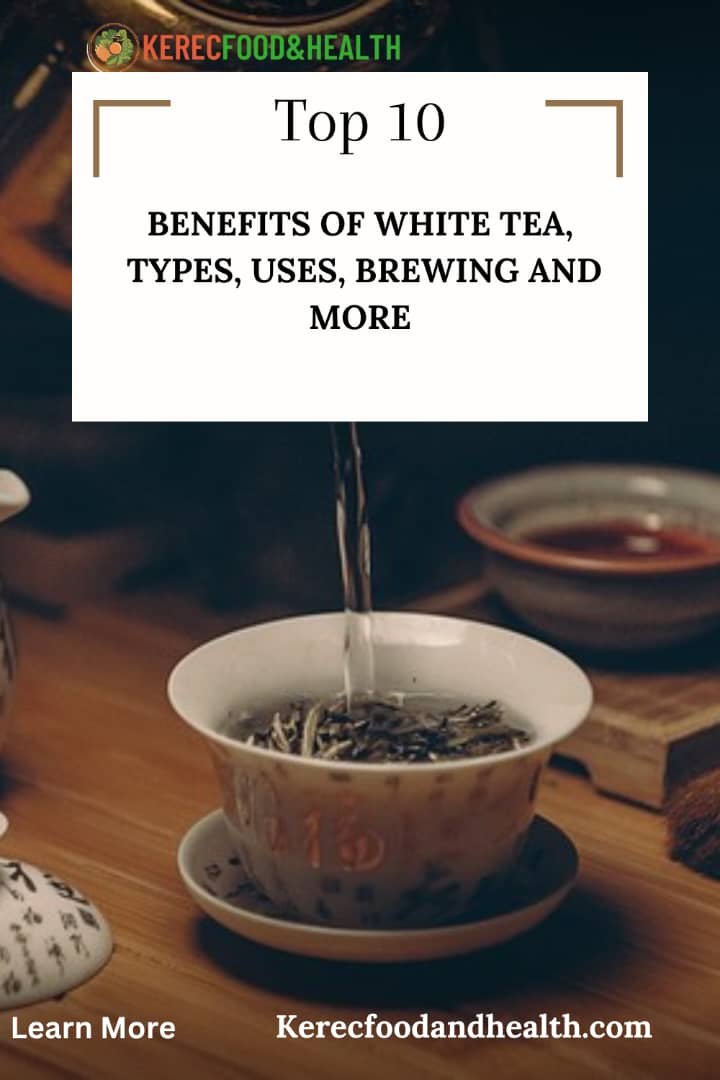Discovering the Subtle Elegance of White Teas
In the bustling world of tea culture, where bold flavors and intricate blends often reign supreme, there exists a delicate gem often overlooked white teas. With its subtle yet sophisticated profile, white tea offers a unique experience that captivates the senses and invites a moment of tranquility in our hectic lives.
What is White Tea?
Contrary to common belief, white, black, green, and oolong teas all derive from the same plant – Camellia sinensis. The degree of oxidation distinguishes them, with white teas undergoing the least oxidation, followed by green, oolong, and finally, black tea undergoing complete oxidation. During the production of white teas, the buds are harvested before the leaves unfurl and promptly dried to halt the oxidation process.
Origins and Production of White Teas
White teas traces its origins back to the Fujian province of China, where it has been cultivated for centuries. Harvested from the Camellia sinensis plant, the same plant used for green tea, black tea, and oolong teas, white teas stands out due to its minimal processing. Unlike other types of tea, white teas are made from young tea leaves and buds that are carefully handpicked and allowed to wither and dry naturally in the sun or indoors, preserving their delicate flavor profile.
Flavor Profile of White Teas
What sets white teas apart is its subtle flavor profile, characterized by delicate floral notes, hints of sweetness, and a smooth, clean finish. Due to its minimal processing, this tea retains a higher concentration of antioxidants, making it not only a delight for the palate but also a healthful choice.
Types of White Teas
White tea is a lightly oxidized tea made from the young leaves and buds of the Camellia sinensis plant. It is known for its delicate flavor, floral aroma, and numerous health benefits. There are several types of white teas, each with its unique characteristics. Here are some popular types of white teas
1. Silver Needle (Baihao Yinzhen)
Silver Needle is considered the highest quality and most sought-after white teas. It consists of only the unopened buds of the tea plant, covered in silvery-white down. The tea has a subtle, delicate flavor with sweet and floral notes.
2. White Peony (Bai Mudan)
White Peony is made from the buds and young leaves of the tea plant. Along with the unopened buds, it also includes the two youngest leaves. The tea has a slightly stronger flavor compared to Silver Needle, with a combination of floral and fruity notes.
3. Longevity Eyebrow (Shou Mei)
Longevity Eyebrow is made from the mature leaves and buds of the tea plant. It has a fuller-bodied flavor with a slightly earthy and woody taste. Shou Mei teas often have a yellow-golden color and a mellow, sweet finish.
4. Tribute Eyebrow (Gong Mei)
Tribute Eyebrow is a grade of white teas similar to Longevity Eyebrow. However, it usually contains only the leaves of the tea plant, without the buds. It has a boulder and more robust flavor with a deeper, slightly smoky taste.
5. Darjeeling White Tea
This type of white teas comes from the Darjeeling region of India. It is made from the Camellia sinensis var. sinensis tea cultivar and is known for its floral aroma and delicate flavors.
6. Ceylon White Tea
Ceylon White Teas are produced in Sri Lanka and is known for its light and delicate taste. It is made from the tea plant’s young leaves and buds and has a pale golden color.
These are just a few examples of white tea varieties. Each type can have its unique flavor profiles, depending on factors such as the harvesting methods, growing region, and processing techniques.

10 Impressive Benefits of White Tea
White tea is a type of tea that is minimally processed and made from the young leaves and buds of the Camellia sinensis plant. It offers several health benefits, including
1. Antioxidant-rich
White tea contains a high concentration of antioxidants, such as catechins and flavonoids. These compounds help protect the body’s cells from damage caused by harmful free radicals and can potentially reduce the risk of chronic diseases, including heart disease and certain types of cancer.
2. Cardiovascular health
The antioxidants present in white teas can help maintain cardiovascular health by reducing inflammation and improving blood vessel function. The antioxidants present in white tea aid in reducing blood pressure and lowering levels of harmful LDL cholesterol in the body.
This naturally decreases the risk of heart disease significantly, as elevated blood pressure and cholesterol are two major risk factors for heart disease, alongside smoking. Particularly, high levels of cholesterol lead to the accumulation of fatty deposits in blood vessels, increasing the likelihood of heart attack and other cardiovascular conditions.
3. Boost immune system
White teas contain certain compounds that can strengthen the immune system, thanks to its inherent antibacterial, antiviral, and antifungal properties that helps the body fight off common illnesses and infections.
The immune-boosting properties of white teas can also be attributed to its antioxidants and catechins. Studies indicate that white teas can rejuvenate the immune function of Langerhans cells, crucial for detecting cancerous byproducts. Additionally, its anti-inflammatory characteristics aid in neutralizing free radicals, thereby safeguarding the body against chronic infections.
4. Skin health
The antioxidants in white teas can benefit the skin by protecting it against damage from UV radiation and environmental pollutants. This tea is also have anti-aging properties and may help reduce the appearance of wrinkles and promote youthful-looking skin. It tea is renowned for inhibiting enzymes responsible for collagen and elastin degradation, thus preserving skin suppleness and promoting rejuvenation.
5. Weight loss
White teas has been suggested to have potential weight loss properties. It is often lauded as a beverage that aids in weight management through two mechanisms firstly, catechins enhance metabolism, resulting in more efficient breakdown of fats and also prevents the formation of new fat cells. Secondly, caffeine content in tea elevates daily energy expenditure, leading to increased calorie burn. Research suggests that white teas, in particular, can elevate metabolism by an additional 4-5%, resulting in the burning of approximately 70-100 extra calories daily.
Furthermore, the polyphenols present in white teas can facilitate fat breakdown and inhibit the formation of new fat cells. However, it’s important to note that white tea alone is not a magic solution for weight loss and should be combined with a balanced diet and regular exercise.
6. Reduce the risk of certain cancers
White teas has the potential to eradicate various types of lung cancer cells. White tea have the ability to stop the proliferation and dissemination of colon cancer cells. Some studies have found that the antioxidants in this tea may have a protective effect against certain types of cancers, including lung, colon, prostate, and breast cancers.
7. Delaying skin aging
Skin aging is an inevitable aspect of life, yet various factors can hasten this process. External aging is influenced by environmental factors, while internal aging is affected by elements like free radicals. Since free radicals are thought to contribute to skin aging, the abundance of antioxidants in white tea combats them, indirectly promoting youthful and radiant skin.
White tea has shown promise in mitigating skin aging both externally and internally. Research indicates that applying white teas topically can shield the skin from UV damage. Additionally, studies suggest that the polyphenols present in this tea may contribute to slowing premature aging.
8. Enhanced cognitive function
Laboratory experiments indicate that specific compounds found in white teas could potentially reduce the likelihood of Alzheimer’s and Parkinson’s diseases by inhibiting protein aggregation. Multiple studies have associated tea consumption with a decreased risk of developing both conditions.
9. Dental health
White teas contain catechins, tannins, and fluoride, all of which contribute to improved dental health. These elements aid in cavity prevention by fortifying enamel, thereby guarding against acid erosion from bacteria. Moreover, catechins, a subgroup of flavonoids, may deter plaque formation on tooth surfaces.
10. Reduce Insulin Resistance
Insulin, a hormone naturally synthesized by the body, regulates blood sugar levels. Insulin resistance, characterized by poor responsiveness to insulin, can contribute to chronic conditions like diabetes and metabolic syndrome. While some animal studies propose that regularly drinking this tea might mitigate insulin resistance, further research is essential to ascertain its efficacy in humans facing insulin resistance.
It’s important to note that while white teas offers potential health benefits, individual results may vary, and it is not a substitute for a healthy lifestyle. It’s also advisable to consult with a healthcare professional regarding your specific health concerns and whether white tea is suitable for you.
How to Brew and Enjoy White Tea?
Brewing white tea is a simple yet rewarding process. Begin by heating water to around 175°F (80°C) to 185°F (85°C) and allowing it to cool slightly before pouring it over the tea leaves. Let the tea steep for about 24 minutes, depending on your preference for strength. Due to its delicate nature, white tea should be steeped gently to avoid bitterness.
White tea is best enjoyed on its own to fully appreciate its subtle flavors, although it can also be paired with light, delicate foods such as fruits, pastries, or mild cheeses. Whether enjoyed in the morning to start the day on a peaceful note or in the afternoon as a refreshing break, white tea offers a moment of serenity in a fast-paced world.
Uses of White Teas
White tea is a type of teas that is known for its delicate flavor and light color. It is made from the youngest tea leaves and buds, which are minimally processed and undergo little oxidation. White tea is primarily produced in China, although it has gained popularity worldwide. Here are some common uses and benefits of white teas
1. Drinking
The most popular use of white teas is to steep it in hot water and drink it as a beverage. White teas has a subtle, refreshing flavor with floral and slightly sweet notes. You can enjoy on its own or with a touch of honey or lemon. Many people appreciate white teas for its gentle and soothing nature.
2. Antioxidant properties
White tea is rich in antioxidants, including catechins and polyphenols, which can help protect the body against free radical damage and promote overall health. The antioxidants in this tea have anti-aging effects and may help prevent certain chronic diseases.
3. Skincare
Due to the antioxidant and anti-inflammatory properties in white tea, cosmetic industries uses white teas in skincare products. It can help protect the skin against damage from environmental factors, reduce inflammation, and soothe irritation. Skin care companies uses white tea infusions as moisturizers, serums, masks, and other skincare products.
4. Weight management
Some studies suggest that white tea may have potential benefits for weight management. It has been found to increase metabolism and fat oxidation, leading to potential weight loss. However, more research is needed to fully understand the mechanisms and effects of white tea on weight management.
5. Dental health
White teas contains natural fluoride, which can help in preventing tooth decay and promoting dental health. It may also have antibacterial properties that could be beneficial in preventing oral infections.
6. Culinary uses
White teas are as an ingredient in various culinary creations. Its subtle flavor can enhance dishes like desserts, ice creams, cakes, and even savory dishes like soups or sauces. It adds a delicate touch without overpowering other flavors.
It’s worth noting that while white teas has various potential benefits, individual experiences may vary. It is always advisable to consult with a healthcare professional before making any significant changes to your diet or lifestyle.
Side Effects of Drinking White Teas
White tea is known for its delicate flavor and numerous health benefits, but it can still have certain side effects. While white tea is generally considered safe for most people when consumed in moderate amounts, it’s important to be aware of potential side effects that may occur in some individuals. Here are a few possible side effects of white tea:
1. Caffeine sensitivity
White teas contain less caffeine than black or green tea, but it still contains some amount. People who are sensitive to caffeine may experience side effects like anxiety, jitteriness, increased heart rate, or difficulty sleeping if they consume excessive amounts of white tea.
2. Stomach issues
Some individuals may experience digestive issues like stomach upset, acid reflux, or diarrhea due to the natural tannins present in white teas. These effects are usually mild and occur in individuals with pre-existing gastrointestinal issues or if consumed in large quantities.
3. Allergic reactions
Although rare, some individuals may be allergic to white teas or its components. Symptoms of an allergic reaction may include hives, itching, swelling, difficulty breathing, or anaphylaxis. If you suspect an allergic reaction, it’s important to seek immediate medical attention.
4. Interference with medications
White teas contain compounds that may interact with certain medications. For example, it may inhibit the absorption of certain medications or enhance their effects, leading to potential health risks. If you’re taking any medications, it’s best to consult with your healthcare provider before regularly consuming white teas.
5. Blood thinning effects
White teas contain natural compounds known as catechins and flavonoids, which possess anticoagulant properties. While this can be beneficial for some people, those who are taking blood-thinning medications or have bleeding disorders should use caution and seek medical advice before consuming large quantities of white tea.
It’s worth noting that most people can enjoy white tea without experiencing any adverse effects. However, it’s always a good idea to consume it in moderation and be aware of your body’s reaction. If you have any concerns or pre-existing health conditions, it’s advisable to consult with a healthcare professional before making any significant changes to your diet.
Conclusion
In a world filled with bold flavors and complex blends, white tea stands out as a beacon of simplicity and elegance. From its delicate flavor profile to its minimal processing, white tea invites us to slow down, savor the moment, and appreciate the beauty in simplicity. So next time you find yourself reaching for your favorite brew, consider indulging in the subtle elegance of white tea—it’s an experience worth savoring.
Reference
- Are There Health Benefits to Drinking White Teas? WebMD Editorial Contributors and Mahammad Juber. September 13, 2022. https//www.webmd.com/diet/health-benefits-white-tea
- 9 benefits of white teas you should know. https//eu.waterdrop.com/blogs/magazine/9-benefits-of-white-tea-you-should-know
- White Teas Benefits 11 Health Benefits Worth Sipping On. Alysa Hullett and Jared Meacham. July 21, 2022. https//greatist.com/eat/white-tea-benefits
- 10 Impressive Benefits of White Tea. Ryan Raman. July 12, 2023. https//www.healthline.com/nutrition/white-tea-benefits
- WHAT IS WHITE TEA? – BENEFITS, TASTE, USES. https//fullleafteacompany.com/pages/what-is-white-tea.
- How to Brew White Teas. May 7, 2023. https//www.wikihow.com/Brew-White-Tea
- How to Brew a Perfectly Delicate White Teas. https//senchateabar.com/blogs/blog/how-to-brew-white-tea
- Health Benefits of White Teas, Uses And Its Side Effects. Hina Firdous and Shilpa Marwah. Aug 31, 2020. https//www.lybrate.com/topic/benefits-of-white-tea-and-its-side-effects
- White Teas Side Effects and Things to Avoid. Hey China. 23/11/2019. https//www.heychina.com.au/b/white-tea-side-effects-and-things-to-avoid/





